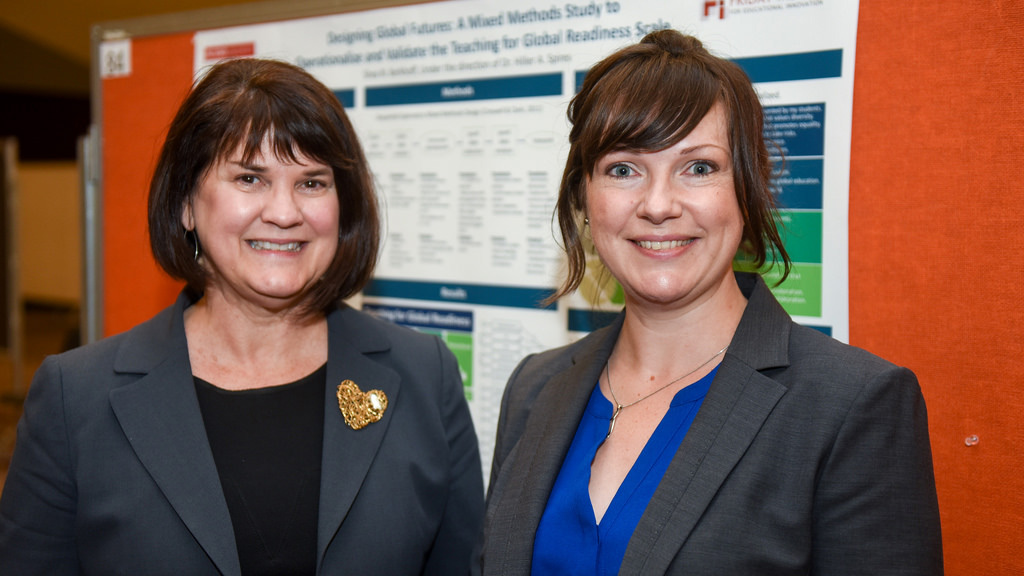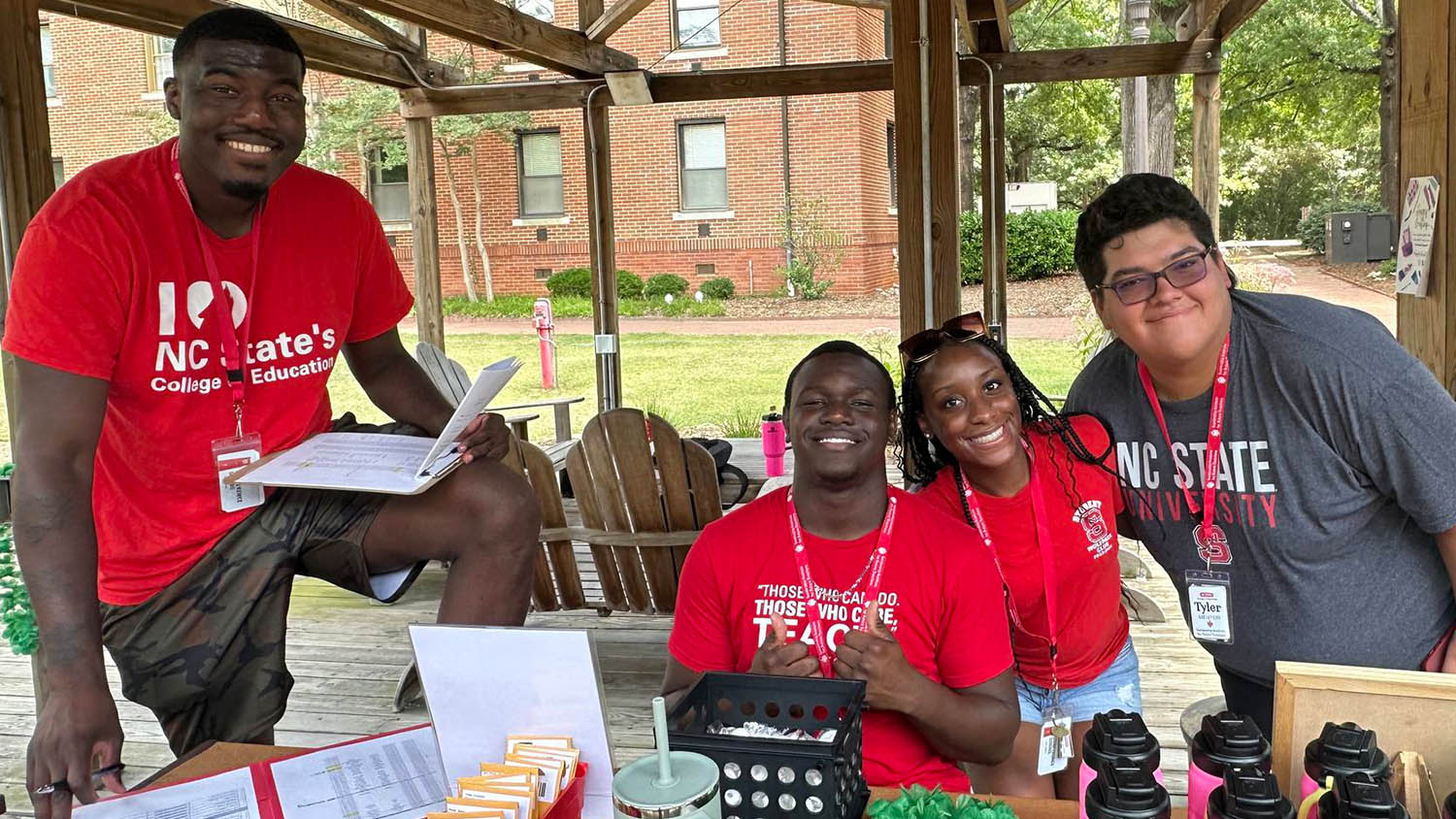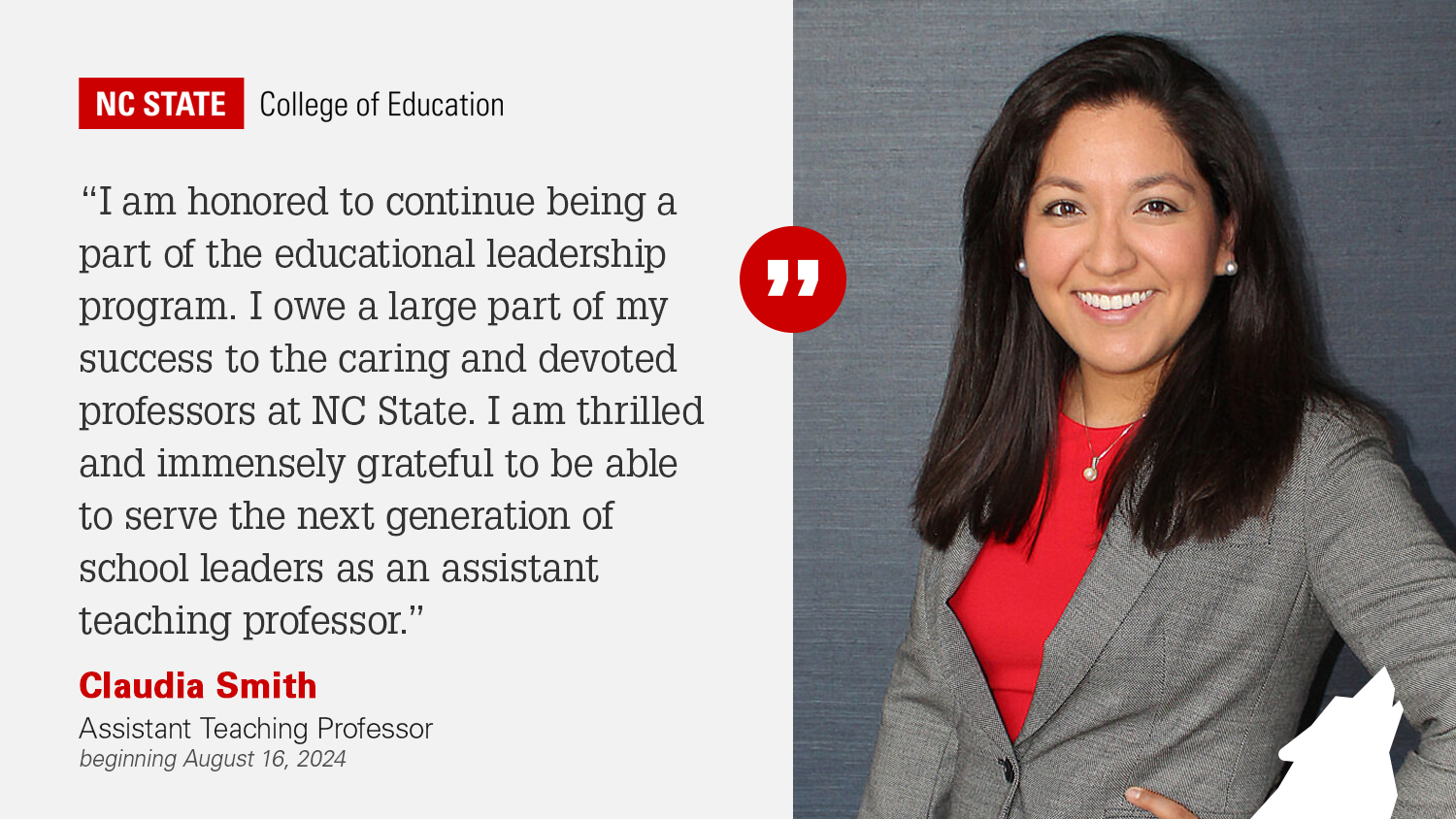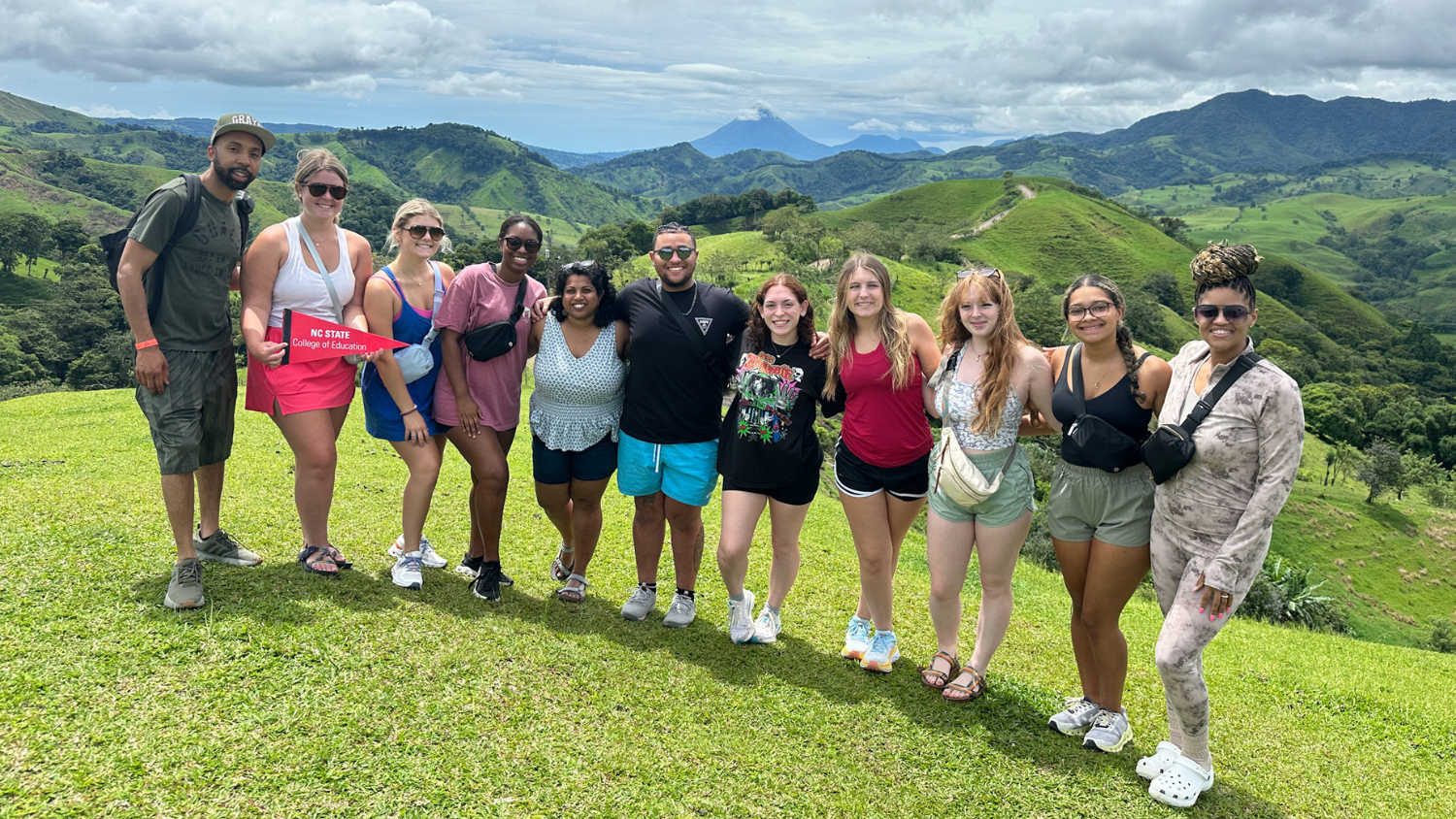Tomorrow’s Learning Leaders – A Love for Literacy

“Tomorrow’s Learning Leaders” highlights a few of our outstanding College of Education graduates. In this installment, we meet Shea Kerkhoff, who received her doctorate in literacy and English language arts at NC State’s spring commencement on May 7.
We talked to Kerkhoff about her time in our Ph.D. program and what she plans to pursue next.
Why did you choose to come to NC State? When did you begin your studies?
I was attracted to NC State because of the faculty’s influence at the state, national and international levels.
The faculty address issues of social justice and equity in education in ways that make a difference with real teachers and real students in North Carolina. In addition, since NC State is located so closely to the state legislature, faculty are in a position to influence education policy and contribute to positive change in the state. NC State is also a Research 1 university with a highly ranked College of Education, which told me that the faculty were connected at the national level and were experts in their field.
I chose to come to NC State because of the innovative new literacies and global research that was happening at the college and the Friday Institute. I believe global education is at the cutting edge of education research and I wanted to work with Hiller Spires (an Alumni Distinguished Graduate Professor of literacy and technology) as she charted the path. International and global education were a big part of the college’s mission when I began my studies in 2013 and the international reach there continues to grow.
What is the greatest challenge you had to overcome during your time here?
The greatest challenge I had to overcome was the intensity and complexity of the reading and writing assignments. You would think that as a Ph.D. student in literacy, I would have come into the program as a strong reader and writer. By going through the program, however, I learned that literacy is not a threshold that is achieved in third grade, but is a lifelong process of development. And, I learned that asking for help isn’t weakness, but it is wisdom.
What has been your best NC State memory?
My best memories include the international trips that I have been able to take with fellow NC State students and faculty as part of my education experience. I was able to go to China with Dr. Spires and work with students and teachers as they undertook vision-building exercises for a state-of-the-art high school. I was able to go to Belize with faculty, as well as graduate and undergraduate students from NC State. We delivered professional development on literacy and women’s empowerment. And, I was able to go to Madrid, which is now my favorite city in the world. It was so beautiful and I was able to meet one of the researchers that I cite frequently in my dissertation. I was star-struck!
What do you plan to do after graduation?
After graduation, I plan to search for a job. I am looking for a tenure-track assistant professorship. In the meantime, I hope to publish my dissertation and begin new research on global readiness with teachers implementing international collaborations.
Has there been a particular faculty or staff member that has greatly influenced your education?
Hiller Spires is the best teacher I have ever had. She challenged me to achieve more than I thought was possible. She encouraged me to take tough courses and supported me through a complex mixed methods dissertation study. She was my teacher, my mentor, my cheerleader and my shoulder to lean on. She mentored me as a new researcher, but also as a mother and as a woman in academia.
She taught me to be tough and gracious, to work hard and to have fun, and most of all, she taught me to “embrace the and” in my research. My work is in multiliteracies and global readiness, and she taught me that education should be about traditional literacies and multiliteracies, as well as locally situated and globally connected. Embracing the and has become my education mantra.
What advice would you give students considering pursuing a degree in education?
My advice to students considering a graduate degree in education is to say “yes.” Yes, do it because you can do it and it is worth it. Once you are in the College of Education, continue to say “yes.” When a faculty member asks you to write something or work on something with them, say yes because those are hands-on experiences that will teach you so much.
If there’s an opportunity for you to do research, say yes. You may not know what you are doing at the beginning, but the faculty are amazing mentors and will guide you through the process. If there’s an opportunity to go to a conference, say yes. The networking is a chance to meet rock stars in the field as well as your future colleagues. If an opportunity presents itself, jump in and take it.
Do you have any additional thoughts on graduating?
Graduation is bittersweet. I am happy and relieved to have accomplished my goal, but I am sad too because I will miss the people I have met and worked with. I am excited but also nervous about what lies ahead. I believe what I have learned at the College of Education has prepared me for my future career and whatever adventures await.
- Categories:


